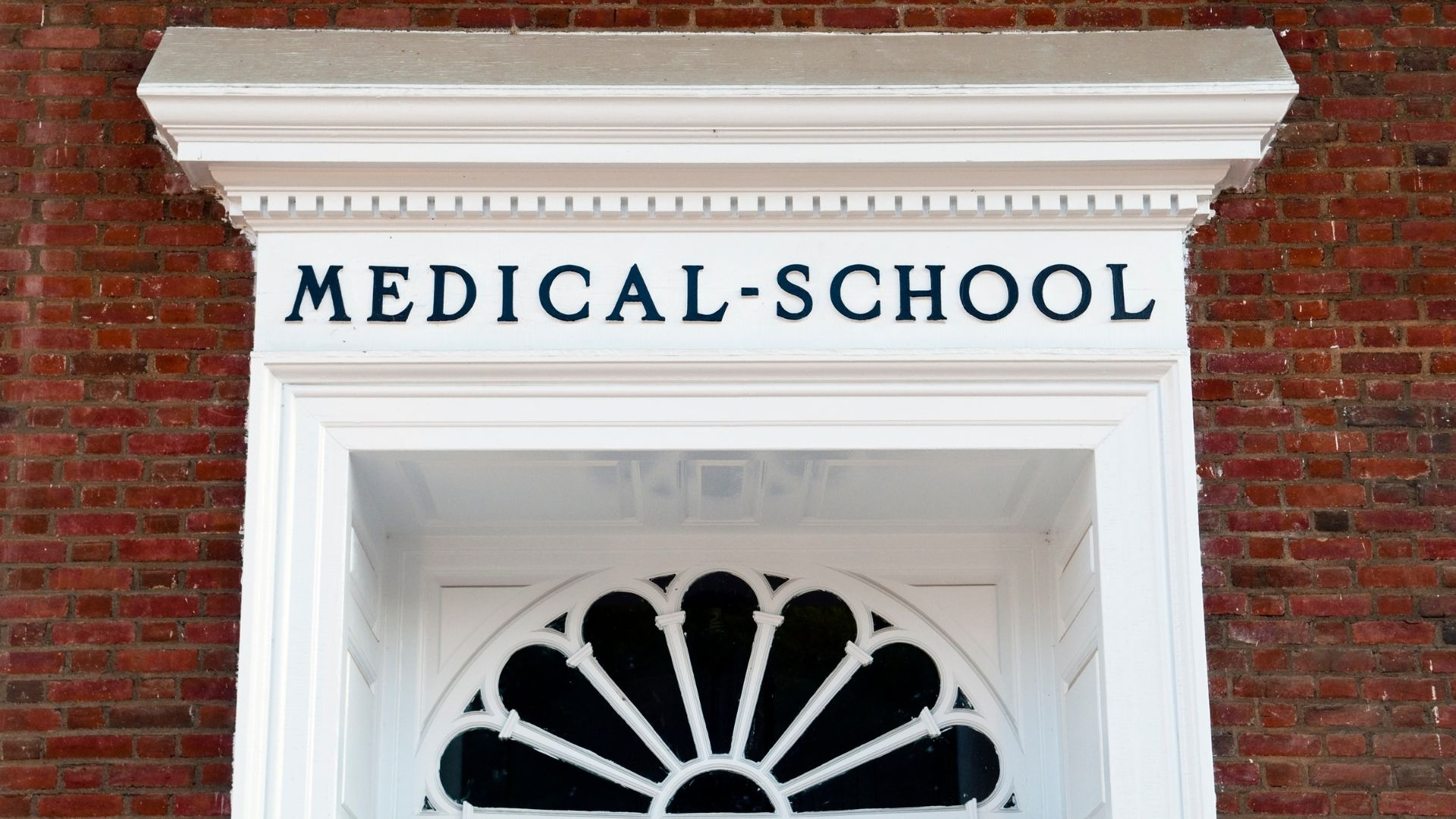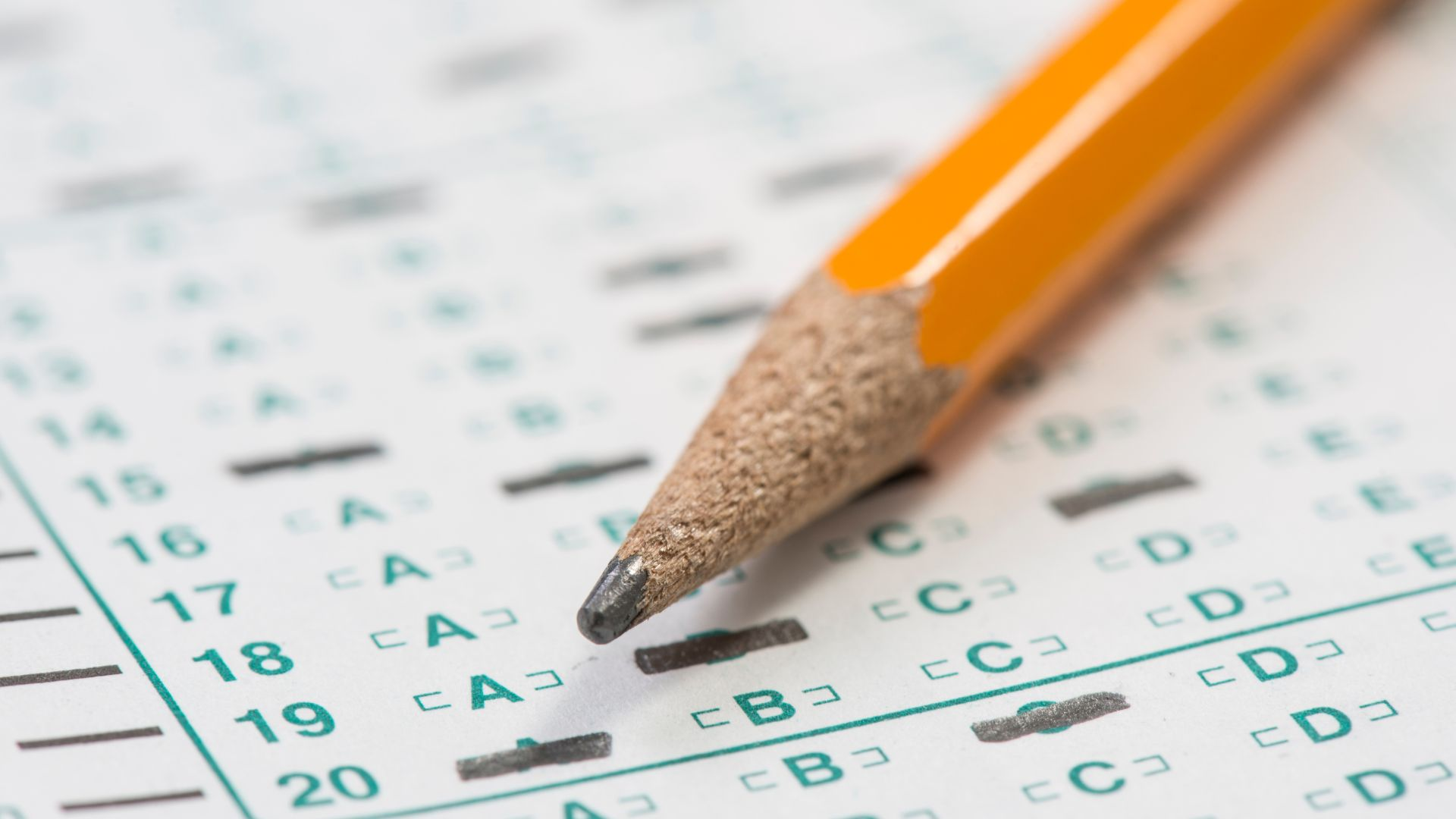Getting into medical school is difficult, but possible with the right strategy. Check out the article below to see tips and tricks that you can use to dominate the medical school admissions process, score well on your medical college admission test, and get into medical school!

Disclaimers: Getting into medical school is difficult. The medical field is highly competitive, often selecting from the best of the best. And it probably should be. Depending on the medical specialty you eventually choose, your day-to-day work will directly or indirectly affect the lives of countless people, sometimes involving life or death situations.
While a lot of time has passed since I applied and attended medical school, the basics behind putting together a competitive application remain largely unchanged. While I did not participate in the selection process at the medical school level, I gained some insight from one of my former roommates who did serve on the medical school admissions committee for several years.
My advice is based on my personal experience and is meant to help people interested in a career in medicine successfully achieve their goals but is by no means a guarantee. I will try to lead you to water, but it is ultimately up to you whether or not you drink.
Building a Competitive Application for Medical Schools
To succeed in gaining acceptance into medical school, as with succeeding in most things in life, requires preparation and hard work. So what do medical schools look for to guide their selection process? These are some of the top categories that medical schools evaluate: Scholastic Achievement, Experience within the Field of Medicine, and Notable Achievements.

Scholastic Achievement
- Overall College and Prerequisite GPA, Degree(s)/Major(s)
- Medical College Admission Test (MCAT) Score
It is somewhat difficult to have an apples to apples comparison between colleges/universities as it is with comparing high schools in the college application process. For example, a biology major at one university may be substantially harder or easier than the same major at another institution.
While your GPA and any scholastic achievements or awards are helpful, medical schools ultimately must rely at least partially on standardized test scores in the form of the Medical College Admissions Test (MCAT) to get as fair of a comparison as possible. This is by no means perfect, but a study has shown that using both GPA and MCAT scores had the greatest correlation with success in medical school.
For both GPA and MCAT, the higher the score, the better your odds. I would strive for a GPA of at least 3.7 and MCAT of at least 510. A 510 on your MCAT will put you at the 80th percentile for MCAT scores and at the 50th percentile for those that get accepted into medical school. The more competitive the medical school, the higher the GPA and MCAT scores you will likely need (MCAT of 515 or 520).

Note that for GPA, medical schools may split your GPA into a science GPA and a non-science GPA. Most medical schools also pay attention to how well you perform on standard medical school prerequisite classes. American medical colleges use these scholastic factors as a proxy for how well a medical student will perform in a medical education curriculum.
MCAT Preparation
There are two common options people use to prepare for the MCAT: taking a MCAT course (e.g., Kaplan, Princeton Review) and self-study. Courses are quite expensive and can range in price from $1,699 for a self-paced course up to $6,999 for an intense daily prep course (as of the writing of this post in February 2022).
While courses weren’t quite that expensive at the time I was preparing for the MCAT, it was prohibitively expensive for me and therefore I chose the self-study method (while working 45 hours per week, but I digress). However, I was fortunate to have a friend who was willing to pass down resources they had received from a friend the year before (Kaplan and Princeton Review study books and practice tests) – yay for hand-me-downs!
Choose the study method that works best for you. If you choose the self-study method, set a study schedule and hold yourself accountable.
MCAT Timing

When should you take the MCAT? Most applicants typically take the MCAT early in their junior year of college since the American Medical College Application System (AMCAS) starts submitting applications in June. The goal is to schedule your test to ensure sufficient time to study, take the test, and allow a month or so to get your results back in time to submit your application.
Some applicants will take the test earlier to allow for enough time to retake the test before the application process goes live, though this is a personal decision and not a standard recommendation. To maximize your chance of success, have your application completed as early as possible. The earlier you submit your application, the better.
Plan ahead! Register for the MCAT early to get your location of choice, book a review course if you are planning on taking one, and continuously add to your AMCAS application to be ready to submit once the flood gates open.
The Earlier the Better
It’s never too early to start preparing! Some of you may have aspirations to become doctors while high school students or even earlier. The sooner you’ve discovered your interest, the sooner you can start preparing for success!
Focus on science courses and grade point average and extracurricular activities starting as a high school student. Use the same strategies outlined in this article to get into a great college.
You can even knock out some introductory college courses by accumulating community college credits while in high school or attend a community college for your first two years to save on college tuition costs and transfer to another college or university after you’ve completed your first 2 years.
High school is also a great time to start preparing yourself for medical school prerequisites (science classes including organic chemistry and biology, math, physics, etc).
Extracurricular Activities/Experience within the Field of Medicine
Research
Medical schools like to see applicants with some experience within the field of medicine and some commitment to the greater good (e.g., community service).
Research, whether in the sciences or not, is a plus. Medical schools are typically associated with an academic center, so look favorably upon research and the prospect of you participating in the pursuit of knowledge at their institution. If your research leads to a publication, that’s icing on the cake.
Research also typically involves critical thinking, which is incredibly important in medicine since medicine largely consists of pattern recognition, following algorithms, and critical thinking/problem solving. Understand that medical schools want to accept applicants who will succeed.
Volunteering
Most of us truly enter the field of medicine to help others in hopes of having a positive impact on the world. Medical schools are looking for this altruism in applicants. A good way to show that you care is to volunteer, preferably in the field of medicine if possible. Volunteering demonstrates commitment to people other than yourself, spending your limited free time helping others.
Look for local campus groups that focus on volunteering (a lot of pre-med students are typically in these for this reason) or find your own opportunities. There are numerous opportunities at most hospitals, free clinics, nursing homes, local shelters, food kitchens, Habitat for Humanity, etc.
Find something that you are interested in or passionate about (e.g., choose a pediatric hospital or Ronald McDonald House if you have an interest in pediatrics) and you’ll be grateful for the experiences. Bonus is that you can sprinkle in your volunteer experience into your personal statement.
Job/Work Study
Personally, I worked in a research lab for 3 years for 8 hours/week and was fortunate to be offered to be an author on one of the projects I was helping with (third author – not terribly impressive maybe but it was a big deal to me at the time). I also worked as a nurse’s aide at the local university hospital (where I met my wife – a pre-med student volunteering at the hospital).
Working can be an opportunity to pursue interests outside of medicine as well. If you can maintain a solid GPA while volunteering and working a few hours a week, that’s impressive. Whether you are working as a research assistant for a clinical trial or working on a project for your local university blockchain group, you’re showing you have the ability to handle a heavy workload.
Unique Traits or Interests
It’s hard to stand out in a sea of incredibly highly-qualified applicants so any little thing that can make you stick out in a positive way is a plus. Whether you’re fluent in a foreign language because you spent a year abroad, are on your university’s solar car team, or had a prior career as a social worker, these are interesting backgrounds that would (and still do) pique my interest as an interviewer. Be memorable (in a good way).
Variety is the spice of life. We do not simply want every doctor cut from the same cookie cutter mold. Innovation and learning are often sparked by conversations between people of different backgrounds. Having a biochemistry/biology background, I have learned a great deal from my colleagues and friends with engineering, business, English, and history backgrounds. These people have had a great influence on me, expanding my horizons and altering my thought process.
Notable Achievements
You’ll notice a common/recurring theme here – try and stand out (in a good way). Publications, awards, internships (medical, scientific field, etc.), leadership positions (clubs, professional fraternities/societies, etc.). patents (amazing if you can pull this off), etc. will help you stand out. Induction into professional and academic honor societies such as Phi Beta Kappa will also further distinguish you from your fellow applicants.
Letters of Recommendation

A good letter of recommendation can be very helpful whereas an average letter of recommendation will do little to improve your application.
Average letters of recommendation fail to demonstrate that the letter writer knows you well. They frequently feel as if bits of information from a CV are picked out and inserted into a generic template and it’s noticeable.
An excellent letter of recommendation, on the other hand, is a pleasure to read. These letters demonstrate a much more intimate relationship and provide several layers of insight into the applicant and what type of person they are.
In my humble opinion, an excellent letter from someone who knows you well is far more beneficial to your application than a templated letter from a prominent figure who doesn’t know you very well.
Personal Statement
Similar to a letter of recommendation, a well-written, interesting personal statement can help you stand out. An average personal statement won’t be memorable.
Personal statements are generally quite similar and focus on why an applicant decided to go into medicine. They typically include some story of a personal experience directly with the applicant or with a family member or friend that caused the applicant to be interested in and want to pursue a career in medicine.
Not everyone will have an incredible story to share – I didn’t. You can overcome this by sharing interesting experiences, particularly from something you’re passionate about. Tapping into your volunteer or extracurricular experiences is a good way to add something memorable and potentially unique to grab the reviewer’s attention.
A story about a longitudinal relationship with a patient you met during your pediatric oncology shadowing (random example) and how their experience has affected you can grab a reviewer’s attention and give some insight into who you are as a person.
Application Process for Medical School Applicants
Apply as early as possible and broadly to maximize your chances of acceptance. Don’t feel obligated to apply to schools or areas of the country/world that you would not be willing to attend or live. Choose ~1/3 reach or dream programs, 1/3 target programs, and 1/3 safety programs.
Accept all interviews and schedule safety school interviews first to give you practice interviewing to better prepare you for your target and reach program interviews. Knock your interviews out of the park!
American Medical Colleges and More!
Not only are there a lot of medical schools, but there are also several different types of medical schools for prospective students to choose from. At the time of this writing, the Association of American Medical Colleges lists 156 accredited medical schools in the United States, consisting of allopathic and osteopathic medical schools.
Allopathic Medical School
An allopathic medical school trains medical students in conventional/modern Western medicine. Allopathic programs require an MCAT score when applying.
Allopathic medical students graduate with “doctor of medicine” medical degrees (MD) and are frequently referred to as “MD programs.” These make up the bulk of American medical schools. Medical students in MD programs take the United States Medical Licensure Exams (USMLE).
Allopathic programs are typically the most competitive medical school programs and thus the most difficult to gain acceptance into.
Osteopathic Medical School

Osteopathic programs take a more whole-person, or holistic, approach to medicine and have added focus on disease prevention and osteopathic manipulation. Osteopathic programs also require an MCAT score when applying, similar to MD programs.
Graduates of osteopathic programs receive “doctor of osteopathic medicine” (DO) medical degrees and are frequently referred to as “DO programs.” DO med students take the Comprehensive Osteopathic Medical Licensing Examinations (COMLEX) rather than the USMLE exams.
The number of osteopathic medical schools has significantly increased over the years, now making up approximately 25% of enrolled medical students. Osteopathic physicians make up ~11% of practicing physicians.
Caribbean Medical School
There are numerous Caribbean medical schools that American college students can attend in lieu of an American medical school. These medical schools are predominantly allopathic programs.
Caribbean schools tend to be cheaper and have a lower cost of living. While a Caribbean medical school is easier to gain acceptance into, it is typically much more difficult for a graduate of Caribbean medical school to match into a competitive medical residency.
Interview
Be respectful. You don’t not want to offend anyone throughout the interview process. Be respectful and courteous to every single person you interact with from the coordinators to the interviewers and your fellow applicants.
Be positive. Avoid speaking negatively about anything and everything.
Be knowledgeable. Research each program and their strengths and unique attributes prior to your interview. Showing you’ve done due diligence prior to your interview shows that you are sincerely interested in their program.
Be on time. Don’t start off on bad footing. Showing up late can instantly paint you in a bad light. Don’t just be on time, be early. Give yourself time to find parking and get lost a few times.
Summary
To further drive this principle home, catch the reviewer or interviewer’s attention.
Medical school selection committees have to sift through thousands upon thousands of applicants and they quickly begin to feel all the same, especially the further you get down the pile. Programs frequently use GPA and MCAT score thresholds to determine which applications to review given the thousands of applications they must sift through. Scores are important but are only the starting point.
Tips for Getting Into Medical School:

- Extracurricular activities, especially within the field of medicine, are favorably looked upon and nowadays expected.
- Prioritize strong letters of recommendations over generic ones.
- Write amazing personal statements letting the reviewer know some of your values and dedication to the betterment of patients and society.
- Create and use unique and notable experiences to stand out. Be interesting.
- Apply early and broadly.
- Crush your interview.
Good luck!

